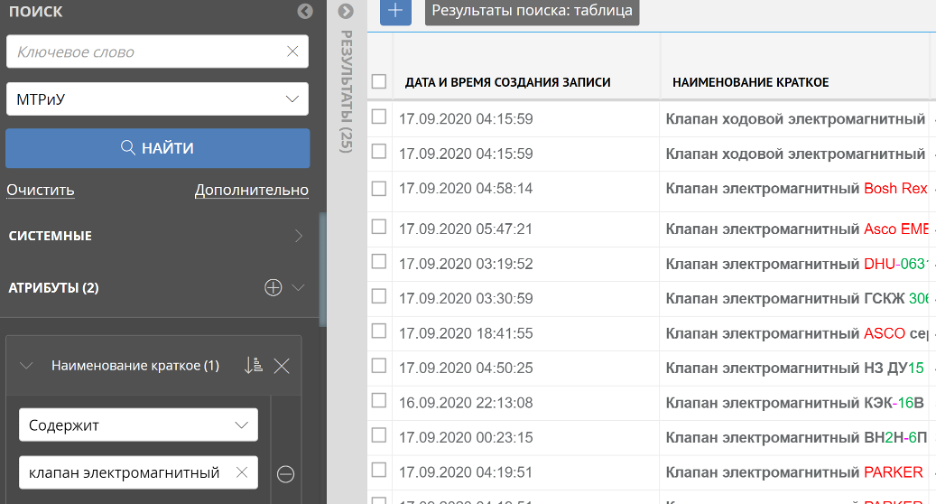
We are glad to welcome you on the corporate page of the company "Unidata". Recently, the name of our company has increasingly begun to sound on Habré, which prompted us to create our corporate blog, in which we will write about data management, data management, and analyze the main trends in the field of Data Management. In a word, to share in the open spaces of "Habr" various interesting materials in the field of data, which we usually did within our Community of Data Management Experts .
Topics that we will regularly touch on in our blog are data governance, data governance, data quality, major data trends, data management implementation methodology, DAMA-DMBOK and much more.
The topic of the first publication lies on the surface. A few days ago, a voluminous article entitled “Experience of acquaintance with the MDM solution of the UniData company ” was published in the “Sandbox” , in which an author from an unnamed company talks about the experience of replacing a foreign solution with our platform.
The article turned out to be voluminous, with many illustrations and examples, but it suffers from well-known schematism and, alas, negative. Many disadvantages are considered, but the pros are not mentioned, which makes us think about the author's objectivity. Perhaps this is due to the following observation that we made over the years of platform implementation: when moving to a new technological level, some colleagues, holding on to their old experience and adherence to their favorite solutions, even very old ones, are often not ready to change and develop following new ones technologies in the field of data management.
We will not analyze everything in detail, the publication, in general, is rather strange, but it is interesting to dwell on some points in more detail.
First quote. Lack of the concept of "legitimate recording state".
, . , ( , ), . -, , , , .
Reality. The main drama is that we are simply talking about a new and from that unusual user interface, which the author of the article, due to natural reasons, did not have time to get acquainted with. And also that companies often create their own notions about the "legitimate state of records" based on previous experience. We would like to use this example to separate the concept of a “single version of the truth” in working with master data and the subtleties of working with records in the user interface.
From a platform point of view, we display the status of a draft post so that system users can see the planned changes in the post card. At the same time, records in the "On approval" status are not published to the recipient systems until the changes made to the draft are successfully agreed upon in the business process. I would also like to mention that the platform interface supports the ability to filter records that are in the "On approval" status, thanks to which you can both hide such records from the user and display published records in the general search results.
About our own automatic duplicate search mechanismin our platform we will write a separate material. There is reason to believe that before the implementation of our platform, the author simply did not work with such tools, this is why such a negative emphasis is placed, precisely on the risk of getting duplicates, which, as we see it, were fought manually.

Second quote. Multiple classification.
, , . , . «» (update) . , , .
Reality. The platform is universal and works in a large number of industries, in which it is often impossible to do without multiple classification, even taking into account all the appeals to GOSTs, methodologies and fairness in general. However, in reality, for example, counterparties may have several classes according to OKVED, etc. At the same time, this item clearly shows a low level of platform ownership, since Multiple classification can be immediately disabled right in the interface .

Quote three. The platform implements a search in reference books on the Elasticsearch engine.
( « »), . , ( ) etc.
.Note that absolutely all search technologies have limitations, but this deserves a separate material related to data management, and we will definitely highlight this in upcoming publications. However, again, the main emphasis is that the old interface was convenient and familiar. For users unfamiliar with the MDM platform, an important disclaimer needs to be made: you are looking for data in registries and reference books that you have modeled yourself, and therefore the ability to create search queries depends on it. The search form indicated in the article works on the principle of "find at least something similar" and has rather wide analyzer settings, as a result of which a lot of noise data gets into the search results. For a clearer search, it is necessary to indicate specific search attributes, and then the result will meet the user's expectations.

. «» .
, , - , . , .
Reality. The author decided not to introduce himself and not talk about what projects, goals and conditions the implementation is under. And he didn't even indicate which company he was from (although, of course, this is already clear from the screenshots). However, it appeals to the fact that the politeness of the platform does not correspond to its organization. At the same time, comparisons are constantly made with a product that certainly did not start its movement in Russia, while our platform was certainly written in Russia from day one. At the same time, we consider this remark to be useful. Let's add the product to the roadmap.
I would like to note that the process of developing and integrating new tools is not only a technique, but also a new user experience that we try to use to improve the quality and further development of the platform. Based on this, we will regularly post new articles on data management on Habré.
See you!